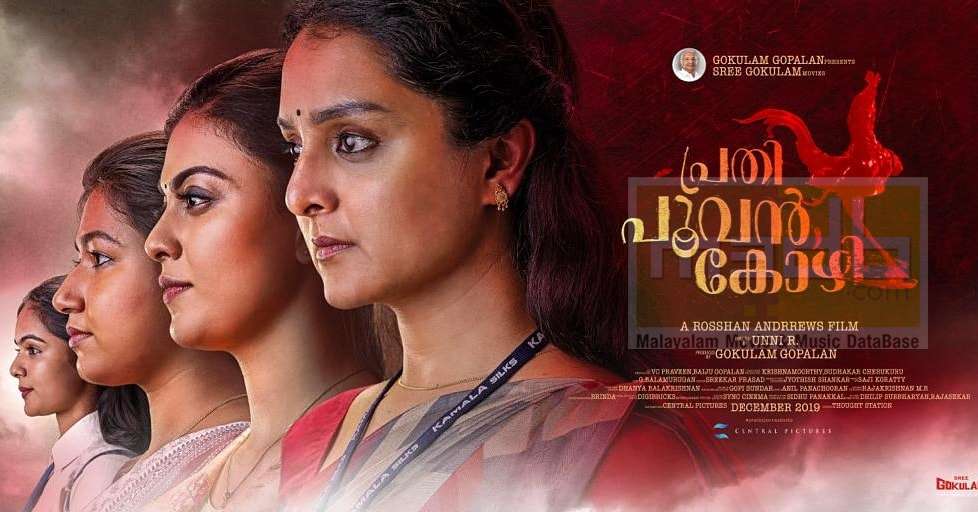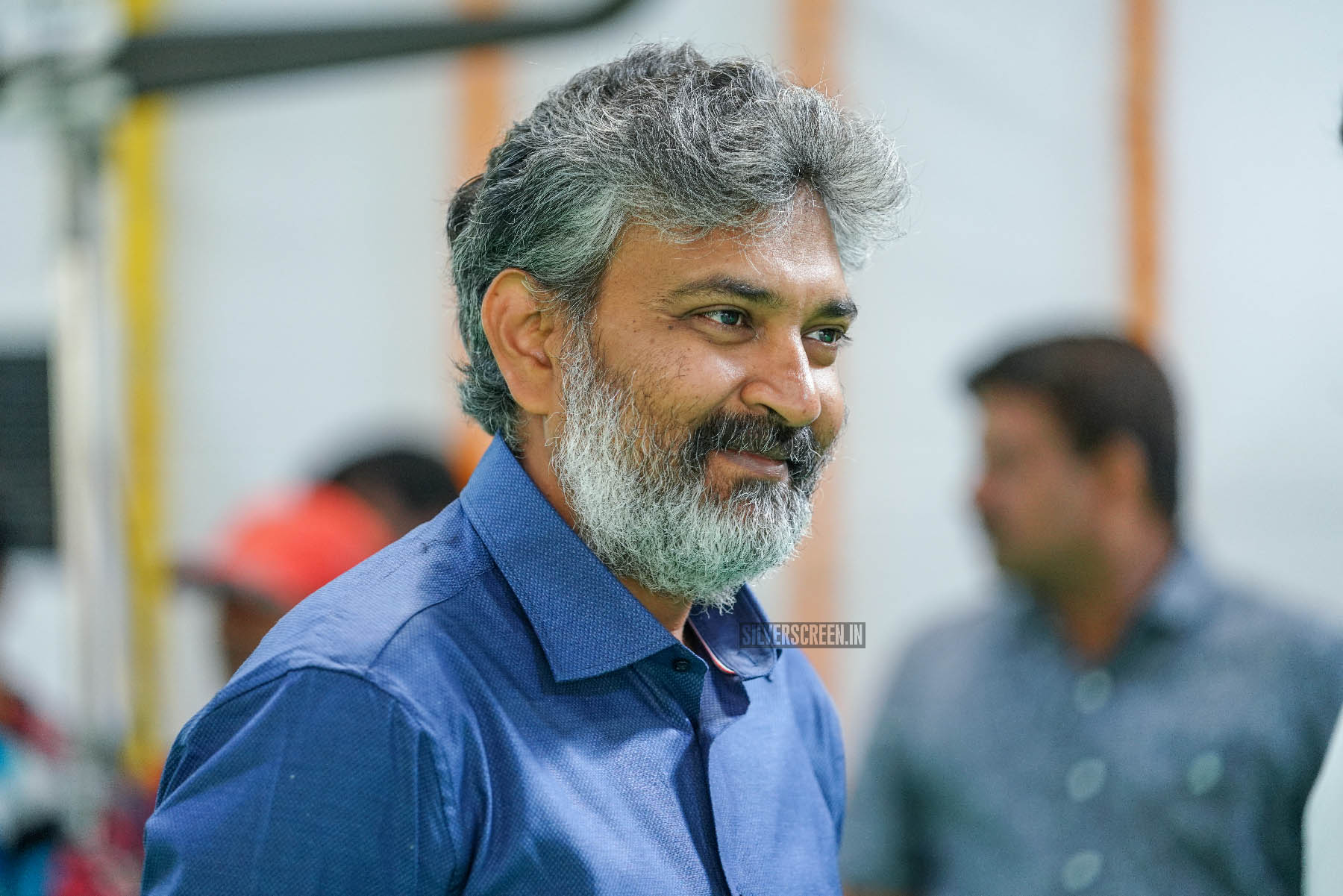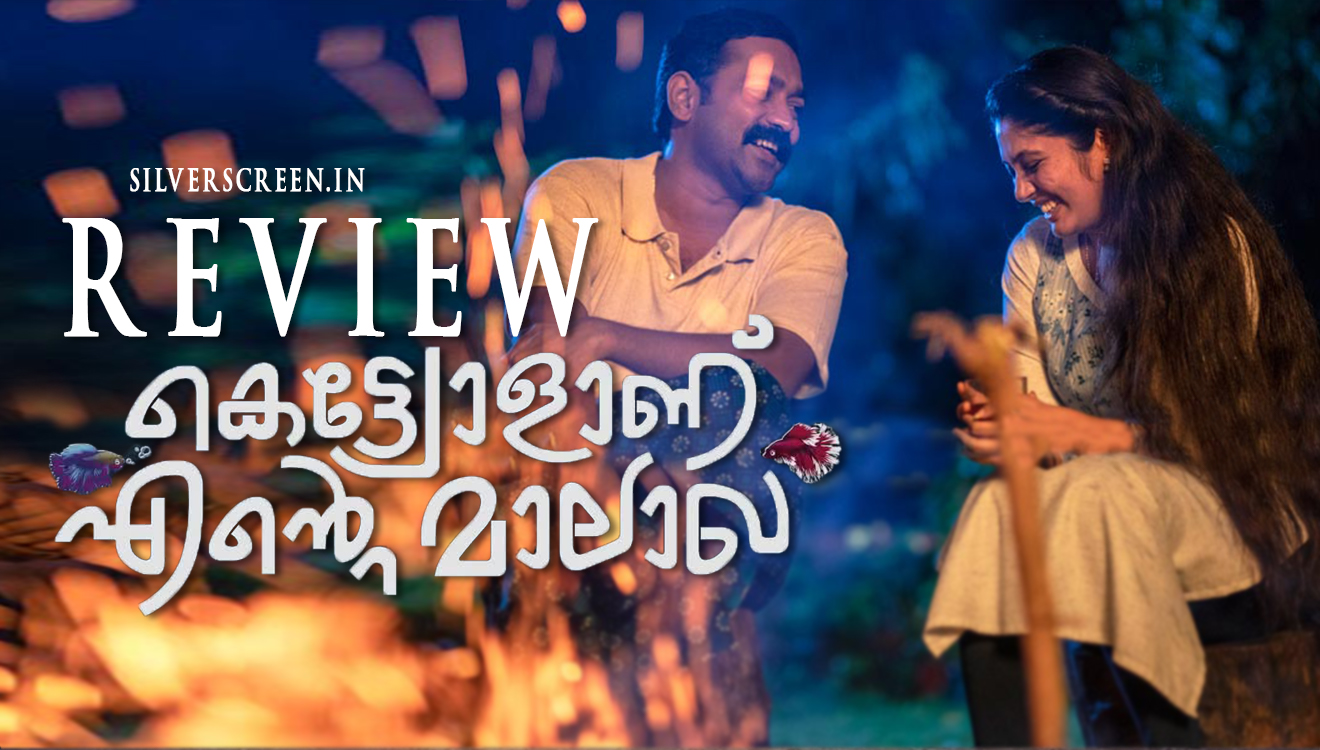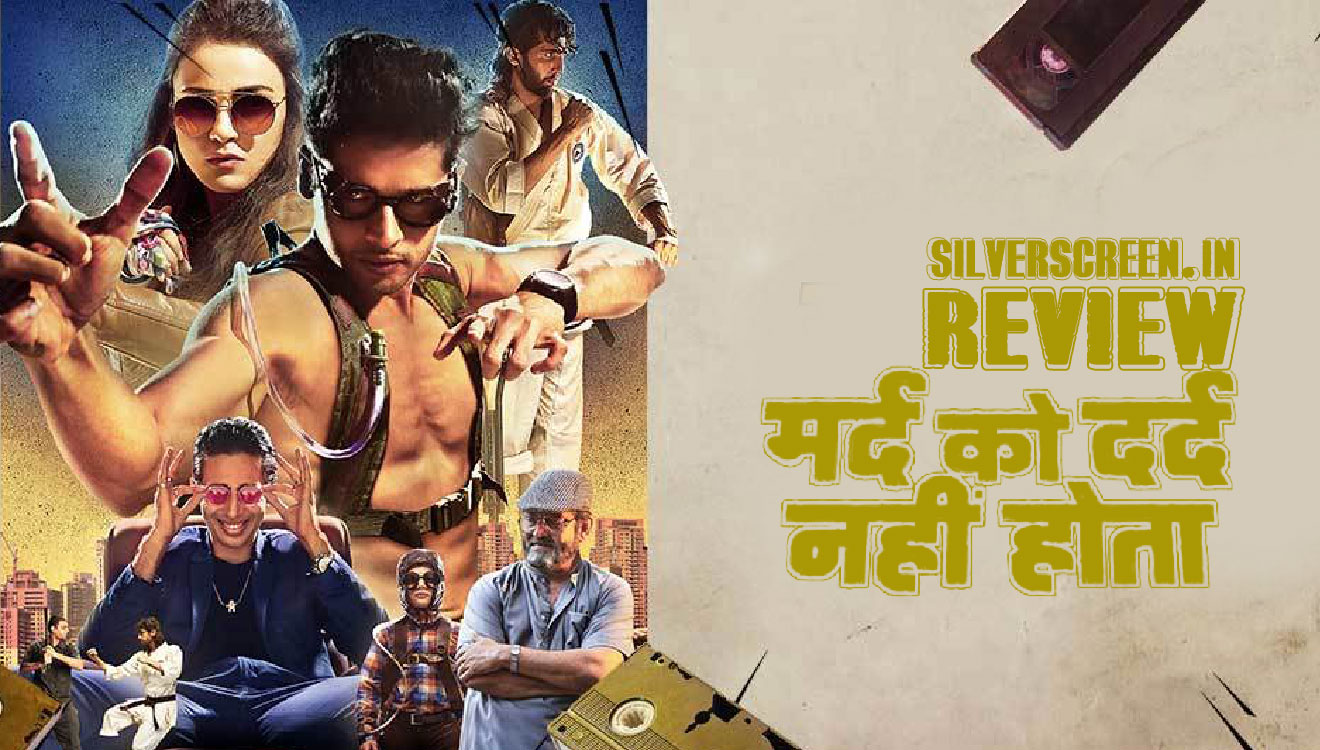Director: Rosshan Andrrews
Cast: Manju Warrier, Rosshan Andrrews, Anusree
There is a lot of red in Prathi Poovankozhi. From the minimally done title cards to the plastic sheet tied to the antagonist’s window in a scene towards the end, the colour stands out, signalling the main motif of the film – female rage.
The sheen of the film’s source material, Sangadam, a short story by Unni R who has also written the screenplay and dialogues, is brightly reflected in the characterisation of the protagonist, Madhuri (Manju Warrier), a saleswoman in a textile shop in Kottayam town. The decisions that she takes in different points in the film aren’t simplistic. The people around her find it hard to comprehend her anger and her sense of justice. The film doesn’t try to explain to the audience the psychological nuances of her actions. It isn’t interested in delivering easy catharsis either. The stress is on the plot, on the complex array of twists and turns she encounters in her pursuit of revenge against a man who physically violated her one day in a public place.
Director Rosshan Andrrews, who has also played the antagonist in the film, opts for a straight-forward narrative. It opens to an everyday scene from Madhuri’s life. She is getting ready for work. After exchanging a few pleasantries with her uncle and mother, she walks to the village bus stop from where she boards a private bus to the city. There is a familiar order to her life. She is plucky, and she likes to stay happy. She has friends and people who watch out for her. She has a bad bank loan hovering above her head, but she is confident about settling it soon. She isn’t entirely against the idea of getting married, something her mother has been pressing on for a long time.
Read: Rosshan Andrrews On Prathi Poovan Kozhi: “I’ve Always Wanted To Do A Realistic Film”
After introducing to the audience the middle-class warp in which she lives, the film breaks its walls little by little, to present a bunch of women who don’t fit into the stereotypical frameworks.
An interesting solidarity runs among the female characters in the film. When a little girl customer at Madhuri’s textile shop is screamed at by her father for wearing a sleeveless top, she consoles the kid and whispers to her that the top only makes her pretty and not ‘disgraceful’ as the father alleges. Her best friend Rose (Anusree) doesn’t agree with Madhuri’s resolve to seek revenge against her attacker but she never leaves her side even as the latter storms into the dangerous male-dominated underbelly of the town.
Recommended
The film doesn’t moral police the women for their choices either. Rose has multiple lovers whom she skilfully manages using many phones, WhatsApp accounts and her ability to lie through her teeth. One of the sub-characters Madhuri approaches to find out the whereabouts of the villain is a part-time prostitute who speaks confidently of her identity. There is a freshness in the way the film looks at these characters; objectively, without being self-congratulatory.
Andrrews and Unni R refrain from using expository scenes and dialogues. They tactically leave many ends undone. You never learn of the true intention of the sweeper at Madhuri’s workplace (Grace Antony) who goes the extra mile to help Madhuri find Antappan (Andrrews). In subtle glances, smiles and nods of head, she hints that she too has an axe to grind, perhaps a similar experience of sexual violation from the past that she has been waiting to avenge. But the beauty of the film is in these gaps that it leaves unfilled. It allows the audience to work their moral compass and form opinions.
But there are some serious missteps too, especially when the film moves away from its source material and tries to play to the gallery. One of the blandest instances in the film is when it tries to crack a joke at the expense of a man for his physical features, his economic background and caste. The post-climactic scene in the film is loud and stripped of nuance; unlike the rest of the film, it is eager to make a statement of empowerment.
The visual aesthetics that Andrrews employs are a mix of mainstream film and stage. The camera and editing are largely unobtrusive, resorting to no gimmickry. The stunt scene where Antappan announces to the market his dominance, is shot using all kinds of commercial cinema elements. The dramatic red spotlight that soaks Madhuri while she’s brooding alone in her bed room is an unreasonable whimsical choice. But, strangely, this approach goes well with the film which doesn’t totally dwell on quasi-realism. It has the whimsies and free-flowing nature of a work of fiction. It is gripping and edgy.

Prathi Poovan Kozhi-m3db-poster-2
Prathi Poovankozhi is an interesting addition to the growing discourse on how Malayalam cinema handles the theme of sexual violence. Like recent films such as Uyare and Stand-Up, female body becomes a spot of political conflict here. But the difference here is that, Unni R treats Madhuri’s battle as a very personal journey, where popular ideals and societal opinion have no place. And Manju Warrier’s energetic and immensely affecting performance adds to the dimensions of the character.
The Prathi Poovankozhi review is a Silverscreen.in original article. It was not paid for or commissioned by anyone associated with the film. Silverscreen.in and its writers do not have any commercial relationship with movies that are reviewed on the site.



